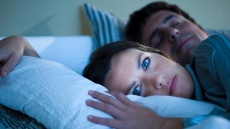The analysis of popular song lyrics from 1960 through 2008 also revealed that the female artists sing about romantic love in a higher percentage of their songs.
The difference is due to gender disparity in the number of songs, with male singers performing a considerably higher percentage of popular songs than female performers during that time period.
The research, conducted by Jennifer W. Shewmaker, Andrew P. Smiler and Brittany Hearon, examined sexual stereotypes in popular music lyrics across five decades.
According to the researchers, women are expected to focus on love and romantic relationships and have sexually objectified bodies, while men are expected to focus on sexual behaviour.
The researchers' media content analysis of 1,250 popular songs showed that gender-based differences in sexuality are indeed common and consistent with gender stereotypes.
71% of all songs referenced a dating relationship, including more than half of all songs in every decade, while 57% of all songs used the word love, most frequently as a romantic term. This includes more than half of all songs in every decade except the 2000s (at 49%).

22% of all songs included a sexual reference, typically via metaphor (11% of all songs), while 14% of all songs included sexually objectifying lyrics, with female bodies being objectified more often than male bodies (13% vs. 4%).
Of the 1,250 songs, 827 were performed by men, 328 by women and 95 by co-ed groups.
More than half of all songs from the rock, R&B and "other" genres addressed dating and love; more than half of all songs from rap genre addressed sex and objectified bodies (and female bodies were objectified more than male bodies)
Among female performers, the proportion of songs referencing dating stayed relatively constant across five decades, 78-83%.
Among male performers, the proportion of songs referencing dating dropped over time, starting at 69% in the 1960s and falling to 59% in the 2000s, despite an increase to 78% during the 1980s power ballad era.
Among female performers, the proportion of songs referencing sex was at 6% in the 1960s, then jumped to 16-21% from 1970-2000.
Among male performers, the proportion of songs referencing sex jumped from 7% in the 1960s to 20-29% through the 70s, 80s and 90s and then jumped to 40% in the 2000s.

The study appears in the journal Sexuality & Culture.





